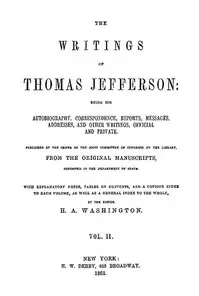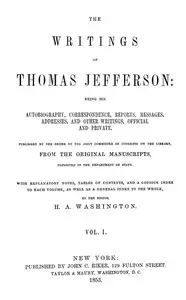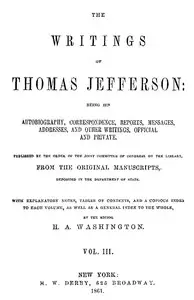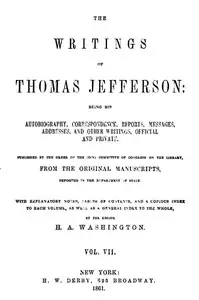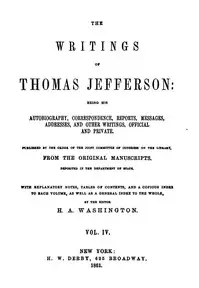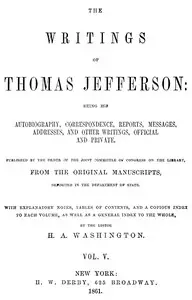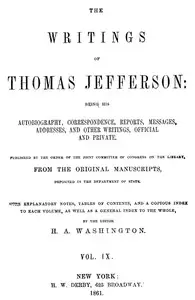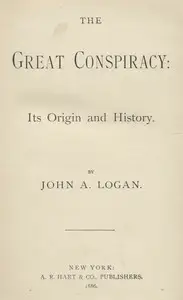"The Writings of Thomas Jefferson, Vol. 6 (of 9)" by Thomas Jefferson is a collection that offers a window into the mind of one of America's founding fathers during the early years of the nation. Focusing on Thomas Jefferson's later years and writings from 1790 to 1826, the collection provides insight into his thoughts on governance, personal health, and nature as seen through various letters from his home at Poplar Forest. As he discusses the importance of friends and the state of the nation, readers gain an intimate glimpse into his philosophical views and intellectual engagements as he reflects on the challenges of time and relevance.
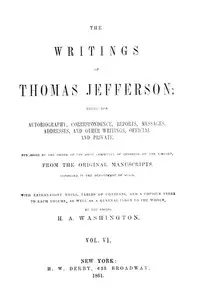
The Writings of Thomas Jefferson, Vol. 6 (of 9) Being His Autobiography, Correspondence, Reports, Messages, Addresses, and Other Writings, Official and Private
By Thomas Jefferson
Experience the personal reflections of a retired statesman as he pens letters from his estate, sharing thoughts on friendship, governance, and the unfolding American experiment.
Summary
About the AuthorThomas Jefferson was an American statesman, planter, diplomat, lawyer, architect, philosopher, and Founding Father who served as the third president of the United States from 1801 to 1809. He was the primary author of the Declaration of Independence. Following the American Revolutionary War and before becoming president in 1801, Jefferson was the nation's first U.S. secretary of state under George Washington and then the nation's second vice president under John Adams. Jefferson was a leading proponent of democracy, republicanism, and natural rights, and he produced formative documents and decisions at the state, national, and international levels.
Thomas Jefferson was an American statesman, planter, diplomat, lawyer, architect, philosopher, and Founding Father who served as the third president of the United States from 1801 to 1809. He was the primary author of the Declaration of Independence. Following the American Revolutionary War and before becoming president in 1801, Jefferson was the nation's first U.S. secretary of state under George Washington and then the nation's second vice president under John Adams. Jefferson was a leading proponent of democracy, republicanism, and natural rights, and he produced formative documents and decisions at the state, national, and international levels.

